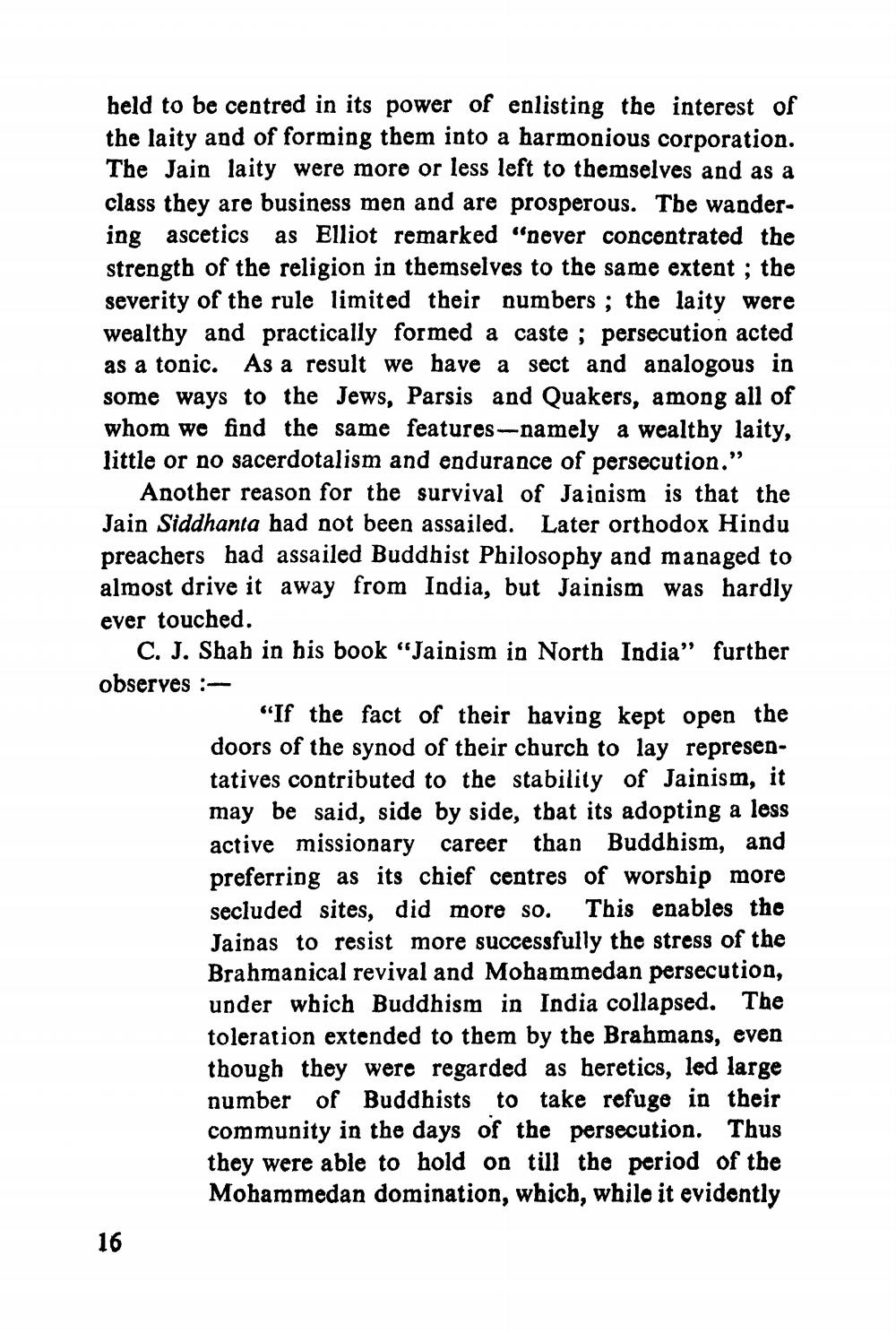________________
held to be centred in its power of enlisting the interest of the laity and of forming them into a harmonious corporation. The Jain laity were more or less left to themselves and as a class they are business men and are prosperous. The wandering ascetics as Elliot remarked "never concentrated the strength of the religion in themselves to the same extent ; the severity of the rule limited their numbers ; the laity were wealthy and practically formed a caste ; persecution acted as a tonic. As a result we have a sect and analogous in some ways to the Jews, Parsis and Quakers, among all of whom we find the same features-namely a wealthy laity, little or no sacerdotalism and endurance of persecution."
Another reason for the survival of Jainism is that the Jain Siddhanta had not been assailed. Later orthodox Hindu preachers had assailed Buddhist Philosophy and managed to almost drive it away from India, but Jainism was hardly ever touched.
C. J. Shab in his book "Jainism in North India” further observes :
"If the fact of their having kept open the doors of the synod of their church to lay representatives contributed to the stability of Jainism, it may be said, side by side, that its adopting a less active missionary career than Buddhism, and preferring as its chief centres of worship more secluded sites, did more so. This enables the Jainas to resist more successfully the stress of the Brahmanical revival and Mohammedan persecution, under which Buddhism in India collapsed. The toleration extended to them by the Brahmans, even though they were regarded as heretics, led large number of Buddhists to take refuge in their community in the days of the persecution. Thus they were able to hold on till the period of the Mohammedan domination, which, while it evidently
16




